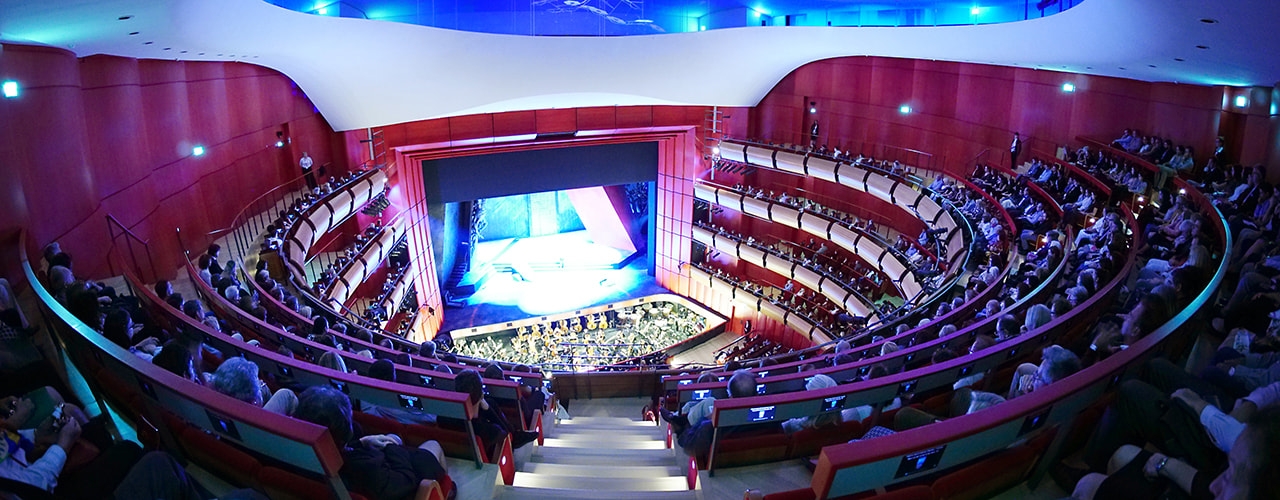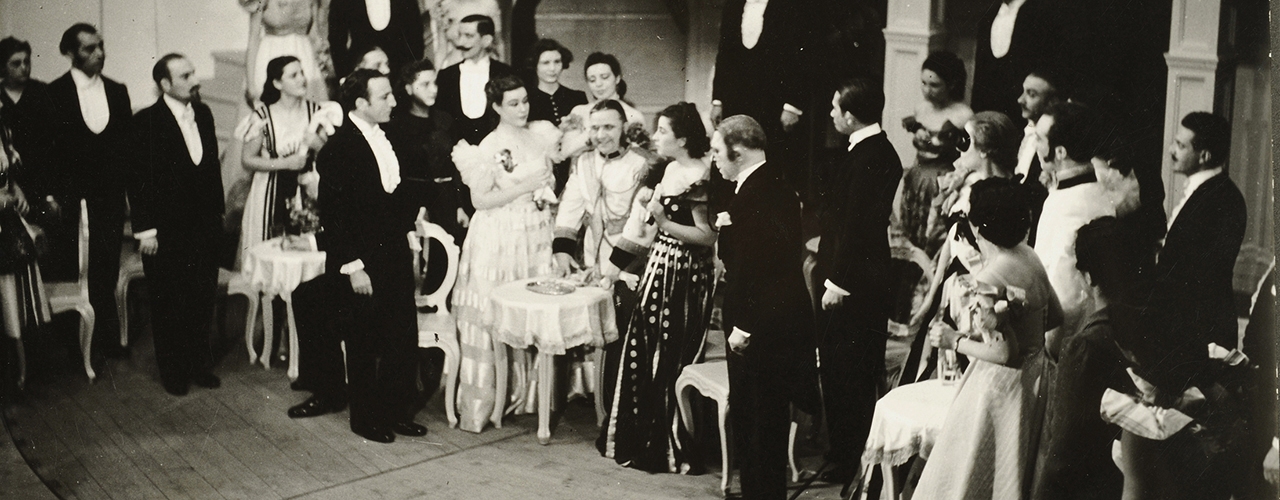
The Greek National Opera (Elliniki lyriki skini) is located in the Stavros Niarchos Foundation: 364, Leoforos Andrea Siggrou
Greek National Opera’s mission is to offer audiences – at home and abroad – high-calibre productions, by presenting operas, ballets, operettas, operas for children and music recitals, among others.
Our organisation also encompasses the GNO Professional School of Dance, as well as educational programmes aimed at all age groups.
Performances are held at Greek National Opera’s two stages at the Stavros Niarchos Foundation Cultural Center (Stavros Niarchos Hall and Alternative Stage), as well as at the open-air Odeon of Herodes Atticus.
The repertory of Greece’s only opera company covers four centuries of lyrical theatre, from the works of Claudio Monteverdi to those of contemporary composers.
History

The Greek National Opera (GNO) was founded in 1939 thanks to the initiative of Kostis Bastias, an author and journalist, director of the Royal (National) Theatre and Director of Arts and Letters in the authoritarian 4th of August Metaxas Regime. Its founding followed a 150-year long flourishing operatic tradition on the Ionian Islands, unoccupied by the Ottomans, as well as half a century of activity of the most important Greek private opera company, known as Hellenic Melodrama (1888-1943). In the beginning, the newly founded company operated as part of the Royal Theatre and gave performances at its main stage on Aghiou Constantinou street.
From the outset, the Greek National Opera repertoire comprised operas, operettas and ballets. The company was inaugurated with the operetta Die Fledermaus, followed by Giacomo Puccini’s Madama Butterfly. Maria Kalogeropoulou (Callas) made her debut with the company, interpreting lead roles in operas such as Giacomo Puccini’s Tosca, Ludwig van Beethoven’s Fidelio, Eugen D’Albert’s Tiefland and Manolis Kalomiris’ The Masterbuilder.
In 1944, before the Liberation from the German occupation, the company was separated from the National Theatre and embarked on its independent course, under the name Greek National Opera. It was housed at the old Olympia Theatre on Academias street. Its first production was Rhea, an opera by Greek composer Spyridon-Filiskos Samaras. The company’s first director was the composer Manolis Kalomiris.
In 1958 the newly-built Olympia Theatre was inaugurated with Verdi’s Aida. The company’s repertoire was significantly expanded in the years that followed, giving prominence to its educational mission, in keeping with a philosophy corresponding to today’s concept of cultural management. Every artistic period would comprise about 20 productions, while about 30 works in total received their Greek premiere. The repertoire covered all periods, from baroque to contemporary works, and all schools, from the Italian, French and German school to the national schools of Eastern Europe and the works of Greek composers. Important performances were staged at the Odeon of Herodes Atticus as well as at the Ancient Theatre of Epidaurus, starring Maria Callas.
This promising artistic development was interrupted by the military regime of 1967. In the seven-year period that followed the coup, the Greek National Opera introduced its regular annual monthly season in Thessaloniki, where almost all works of each artistic season were presented. After the restoration of democracy in 1974, a new generation of Greek artists were invited to the theatre, breathing new life to it. In the hard years of political transition, worthy directors have been at the helm of the GNO, supporting and ensuring its development and artistic growth, despite the financial and institutional challenges. Converting the GNO to a Legal Entity of Private Law (1994) boosted its development even further. A policy of co-productions with leading opera houses from abroad was gradually developed and started flourishing from 2000 onwards. The repertoire’s substantial expansion was followed by a visual upgrade of the operatic spectacles as well as by the organization’s international promotion. In parallel, the policy of extroversion, through outreach events throughout the country, has led to audience expansion.
On 23 February 2017 the Stavros Niarchos Foundation Cultural Center, which comprises the new home of the Greek National Opera, was handed over to the Greek state. The company’s first performances were presented in both of its venues, the Stavros Niarchos Hall and the Alternative Stage, during the trial period, in spring 2017.